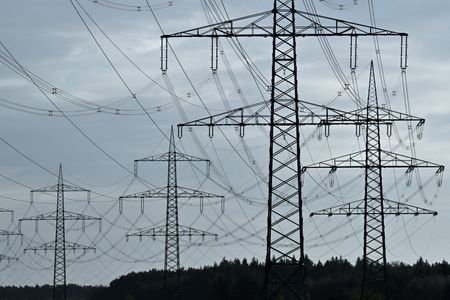BERLIN (Reuters) -Germany’s network regulator on Monday started a formal process to rethink the electricity grid fee structure, aiming for a system better suited to renewable energy.
Fees for using the power network already make up around 20% of consumer bills in Germany, contributing to energy prices that are among the highest in Europe, hurting the country’s industry and overall economic output.
The current system needs reform to boost revenue and involve more stakeholders in network expansion costs. It lacks incentives for flexible users to reduce peak demand and fails to guide energy infrastructure planning with clear price signals, industry experts say.
In a discussion paper published by the regulator on Monday, the agency outlined several proposals, including making renewable energy producers contribute to the cost of the grid, so far borne by consumers alone through their energy bills.
The new system might charge a flat fee or a surcharge based on the size of a user’s connection instead of how much electricity is used. It introduces so-called dynamic pricing, determining grid fees by how busy the network is, hoping to push consumers to use energy in a smarter way.
The network agency, which gave a June 30 deadline for the public and stakeholders to comment on the paper, may set up special rules to better integrate batteries and storage facilities into the system.
In addition to the proposals, Germany’s new government plans to reduce power tax to the European minimum and halve transmission network fees, with the aim of permanently capping them, in a bid to lower prices.
(Reporting by Riham Alkousaa; Editing by Kirsten Donovan)








